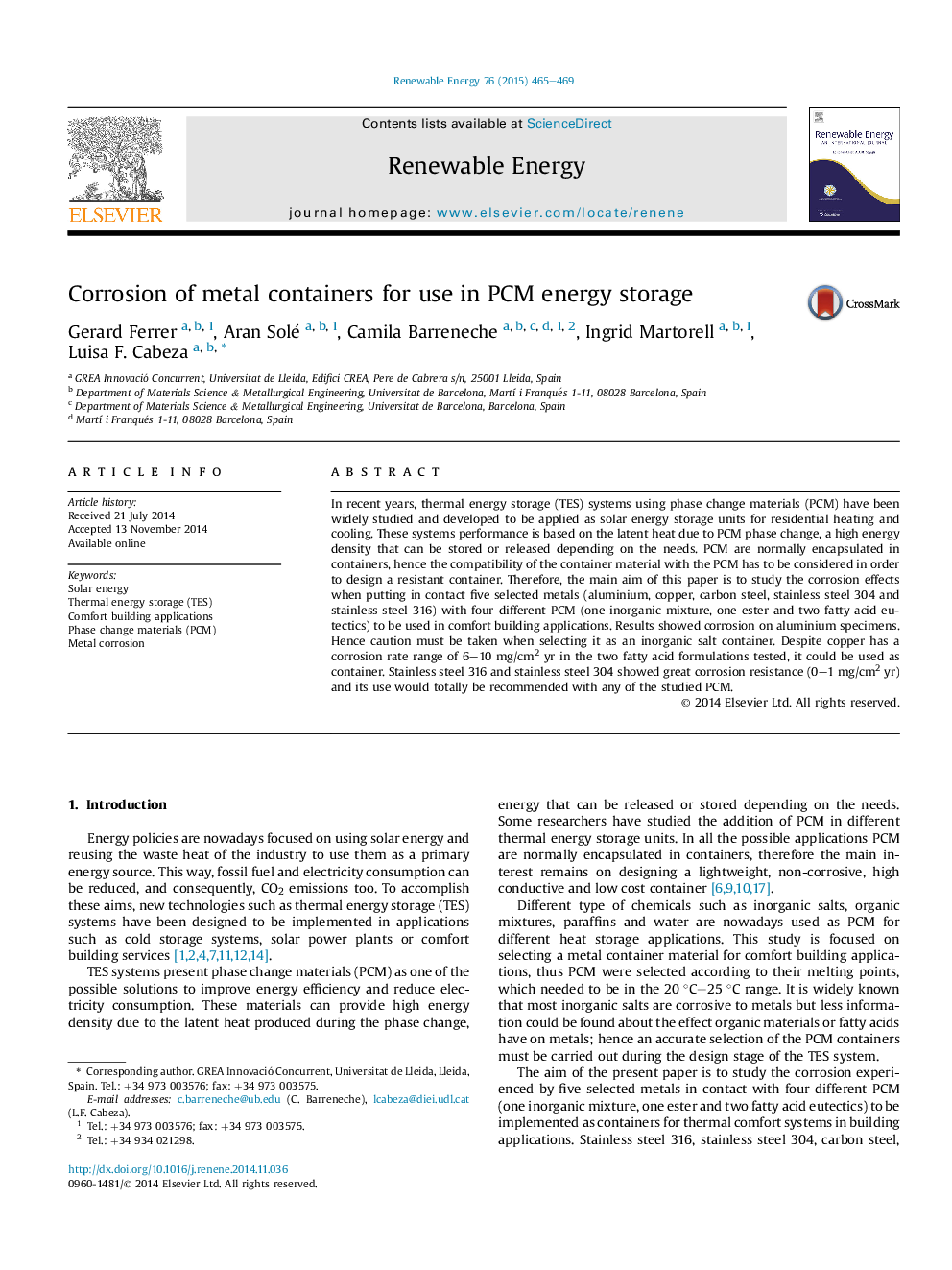| Article ID | Journal | Published Year | Pages | File Type |
|---|---|---|---|---|
| 6767756 | Renewable Energy | 2015 | 5 Pages |
Abstract
In recent years, thermal energy storage (TES) systems using phase change materials (PCM) have been widely studied and developed to be applied as solar energy storage units for residential heating and cooling. These systems performance is based on the latent heat due to PCM phase change, a high energy density that can be stored or released depending on the needs. PCM are normally encapsulated in containers, hence the compatibility of the container material with the PCM has to be considered in order to design a resistant container. Therefore, the main aim of this paper is to study the corrosion effects when putting in contact five selected metals (aluminium, copper, carbon steel, stainless steel 304 and stainless steel 316) with four different PCM (one inorganic mixture, one ester and two fatty acid eutectics) to be used in comfort building applications. Results showed corrosion on aluminium specimens. Hence caution must be taken when selecting it as an inorganic salt container. Despite copper has a corrosion rate range of 6-10Â mg/cm2Â yr in the two fatty acid formulations tested, it could be used as container. Stainless steel 316 and stainless steel 304 showed great corrosion resistance (0-1Â mg/cm2Â yr) and its use would totally be recommended with any of the studied PCM.
Related Topics
Physical Sciences and Engineering
Energy
Renewable Energy, Sustainability and the Environment
Authors
Gerard Ferrer, Aran Solé, Camila Barreneche, Ingrid Martorell, Luisa F. Cabeza,
